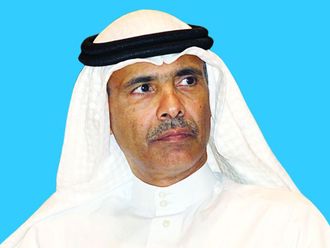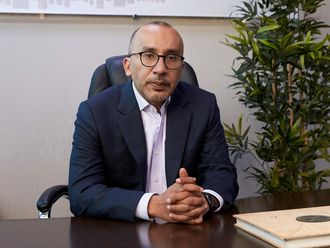A week into the announcement by Saudi Arabia’s Deputy Crown Prince Mohammad Bin Salman a key question is already percolating: Can the young prince deliver?
“Saudi Arabia’s Vision for 2030” is a bold blueprint for the next 15 years and ticks all the right boxes: streamlining bureaucracy, empowering the private sector, bringing more women into the workforce, unleashing the wealth of its crown jewel Saudi Aramco and even providing green cards for long term residents of the Kingdom.
It’s ambitious, not lacking in detail and has consultancy speak laced throughout the document. Even the highlights of the plan distributed by the Prince — often referred to by his initials MBS — ran a full 40 pages.
Some of the bolder initiatives include doubling the size of the economy to $1.6 trillion, developing a $2 trillion sovereign wealth fund that would be the equivalent of Norway’s and Abu Dhabi’s combined and being ranked within the top 15 economies in the world.
Officials at the International Monetary Fund were informed about the plan all along the way and given an early preview of what was going to be unveiled April 25. Masood Ahmad, the Regional Director for the IMF, told me during an interview in Dubai, that it is only correct that the MENA region’s largest economy is the one that begins to redraft the social contract between government and nationals.
“I think it is important to lay out an end game vision and in that sense that vision may be somewhat of a shock to people … but clearly that is where the Saudi Arabian economy needs to go,” said Ahmad. He added in a measured tone, “That is where a number of other Gulf countries in their own way will need to go.”
It is clearly a new reality. Instead of crude averaging $100 a barrel as it did between 2011-14, no one here in the oil belt, where two-thirds of proven global reserves sit, is willing to make a bet beyond $60 in the medium term.
The IMF said Gulf economies are pegged to expand only 1.8 per cent this year with budget deficits remaining alarmingly high at over 12 per cent. On a panel that I chaired at the Arabian Hotel Investment Conference, leading executives talked about government borrowing crowding out the private sector.
They said there is a real danger that the region could enter an economic death spiral. After being spoiled by record government spending, severe budget cuts could lead private sector companies to hesitate or worse yet retrench.
In this scenario, aspirations by Mohammad bin Salman to have the private sector represent 65 per cent of GDP from less than 40 per cent today looks overly ambitious; so too does his plan to reduce unemployment from over 11 per cent down to 7 per cent by 2030.
Badr Albadr, CEO of Riyadh based Dur Hospitality, said his company will not be trimming back existing plans, which include projects from Jeddah in the west to the oil rich Eastern Province. He however underlined the importance for the extended royal family and Saudis young and old to embrace what the 30 year-old Prince put on the table for the global community to see.
‘So far so good’ is what I am hearing from Riyadh. “I think so far society is along with him. Also, Prince Mohammad is quite intelligent in understanding the vibes within the wider society,” said John Sfakianakis, Director of Economics Research at the Gulf Research Center.
But the former G20 representative for the Kingdom’s Ministry of Finance flashed warning signs of caution about the speed of change.
“If they go too quickly, society will not be able to follow along and also the private sector may not be able; so it has to be a gradual reform project.”
Sfakianakis pointed to recent backtracking on efforts to raise water prices across the board in the Kingdom. There was a major pushback by Saudi nationals, the Deputy Crown Prince retreated and then he dismissed the minister in charge of that portfolio.
And while he is being bold by talking of a new Kingdom that will almost be unrecognisable from today’s economy, he instilled his own sense of realism into the near term National Transformation Plan that represented the first phase of this effort through 2020.
In interviews before the official launch, he talked of creating 1.3 million jobs for Saudi nationals by the end of the decade. That was absent from the final document and perhaps for good reason, since in 2015 only a net total of 50,000 were actually created, according to the Gulf Research Center.
Khalid Janahi, former vice-chairman of the Arab Business Council of the World Economic Forum and a Gulf investor, has worked on the policy agenda in the region for the last two decades, to contend with what is often described as the youth bubble.
He said the young leader is dealing with what are the big elephants in the room, the time bomb of sustainable economic development and creation of jobs. But he admits, realising Vision 2030 may prove challenging.
“Giving handouts is no longer a way forward,” and selling future resources for short to medium gain could be a “disaster in the long term”.
The writer is Emerging Markets Editor at CNNMoney.












